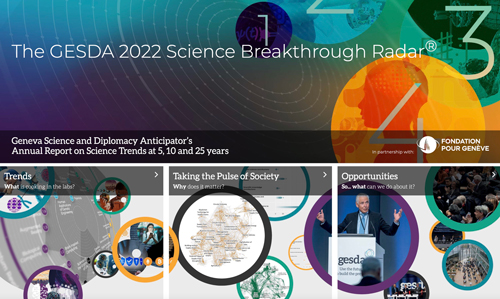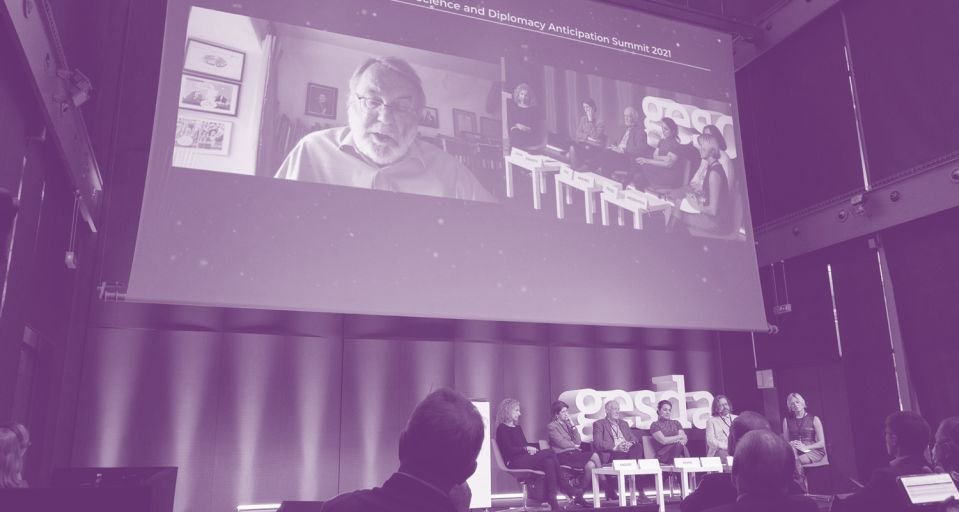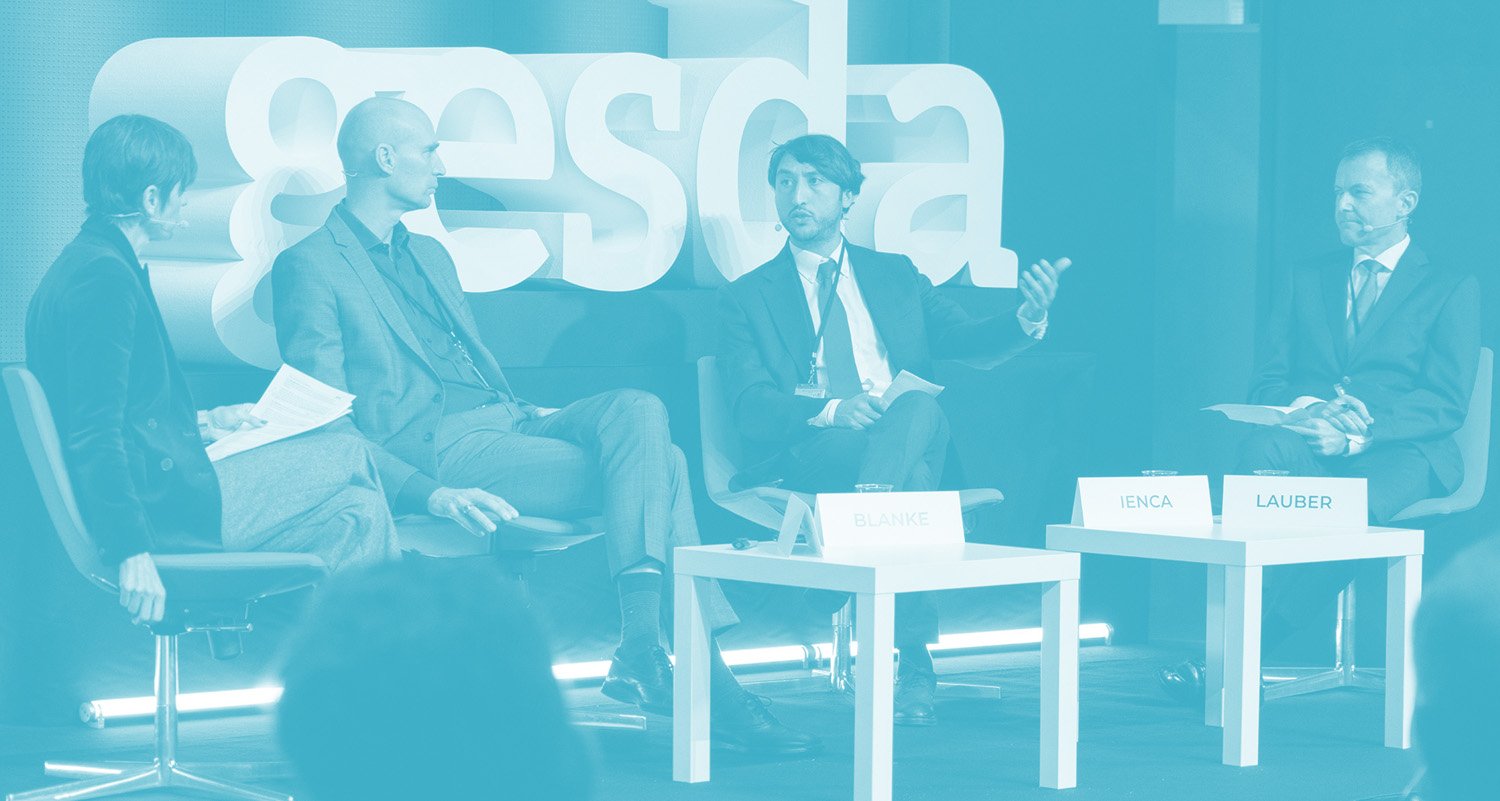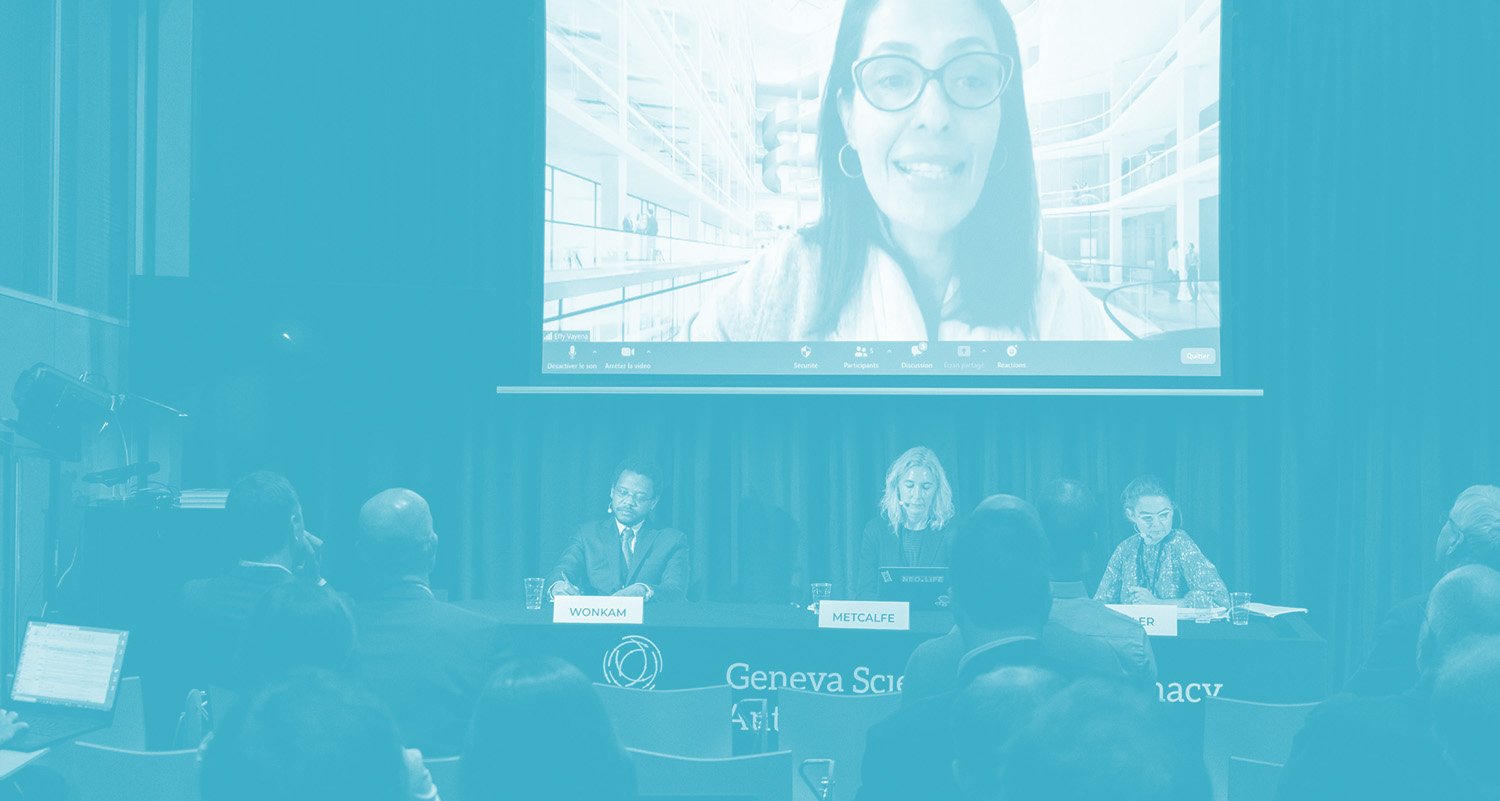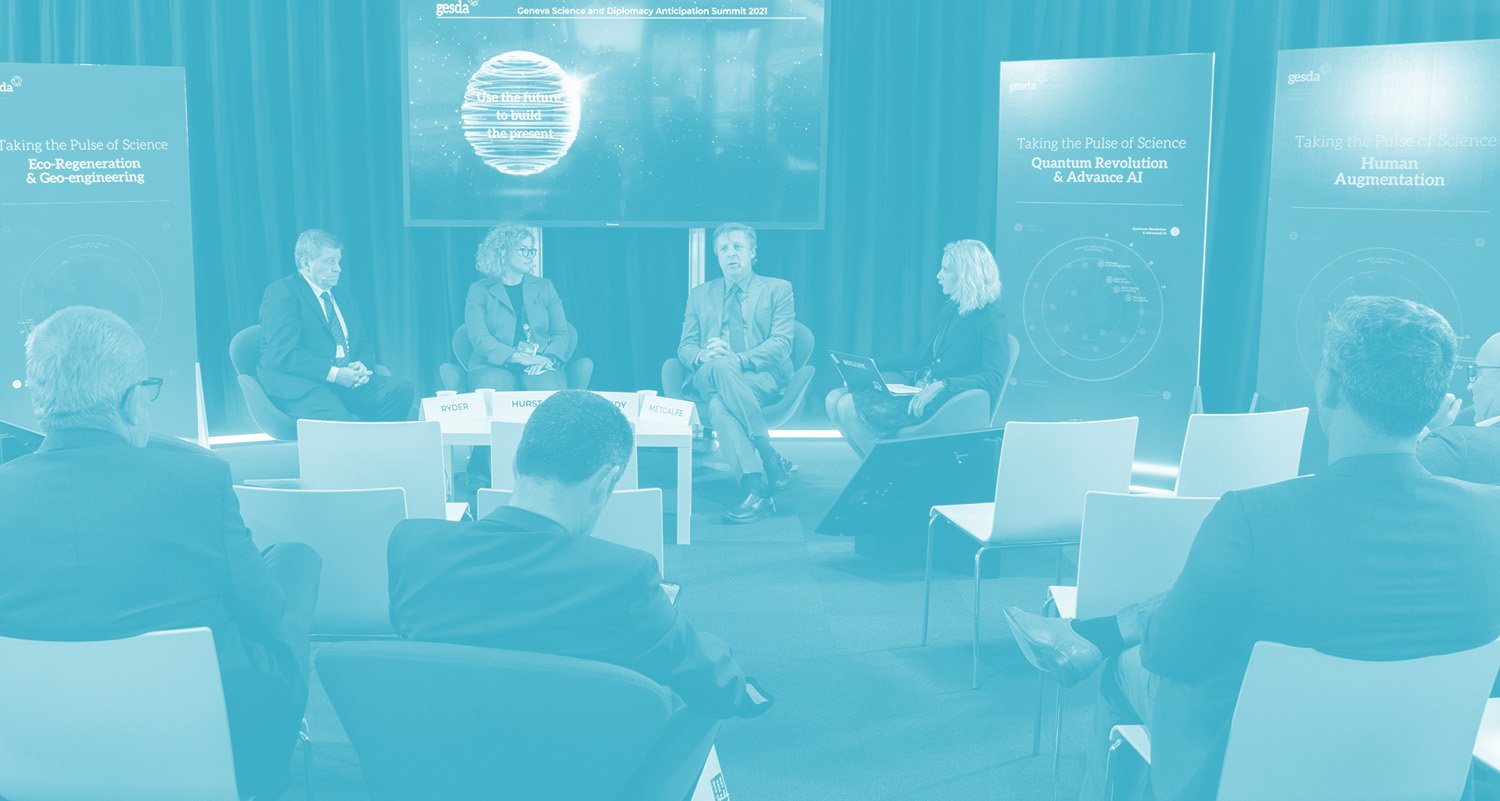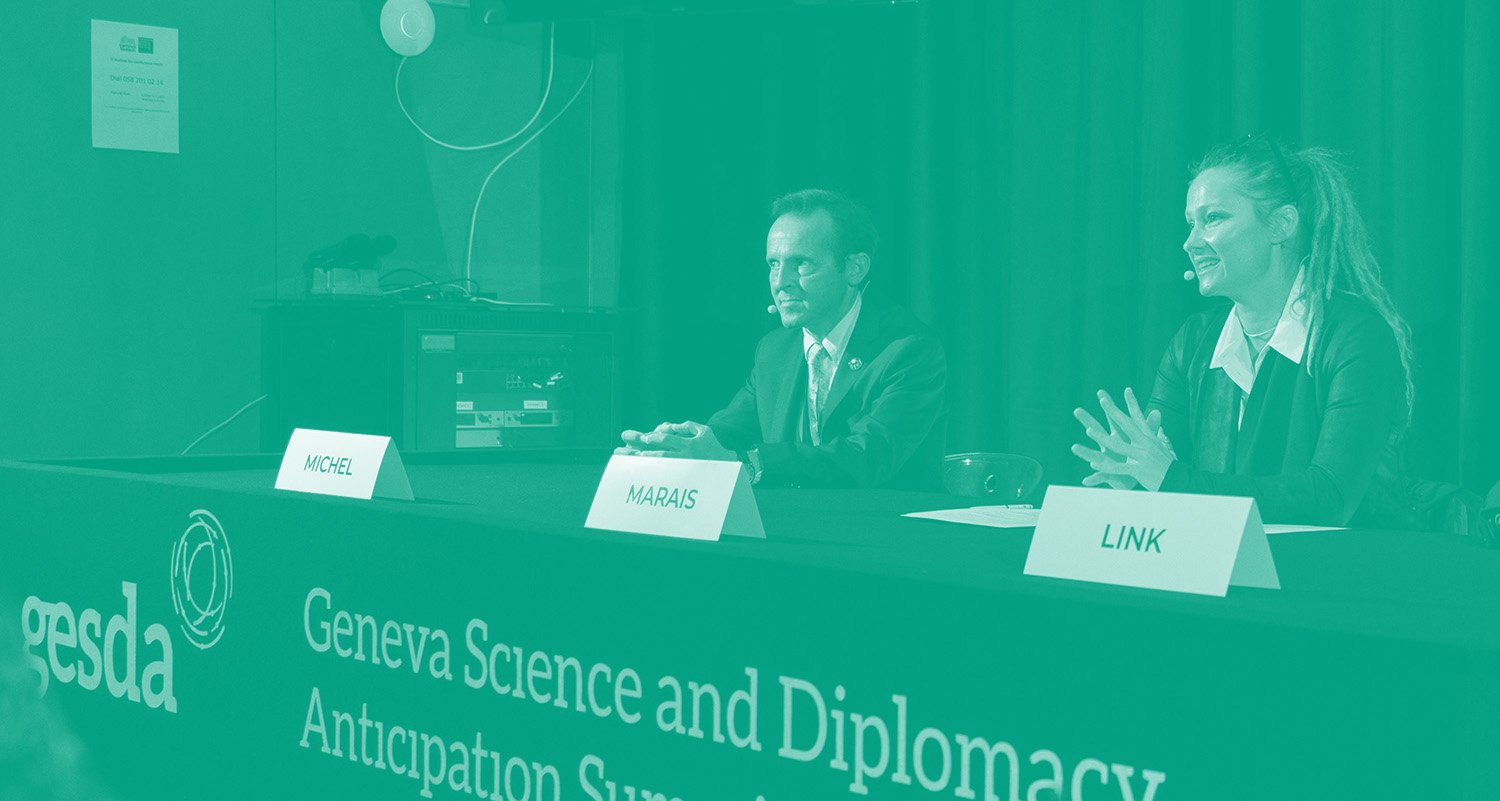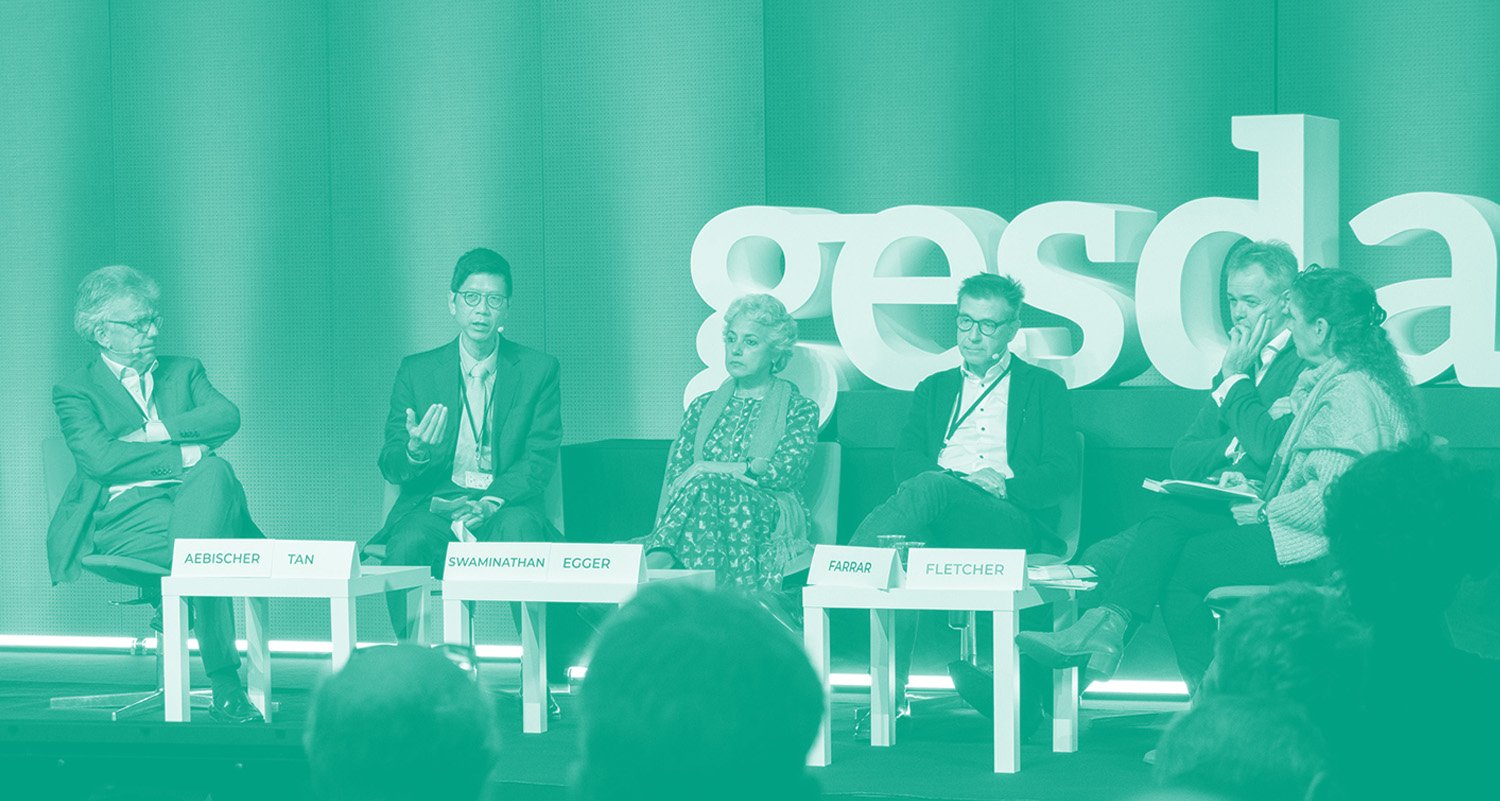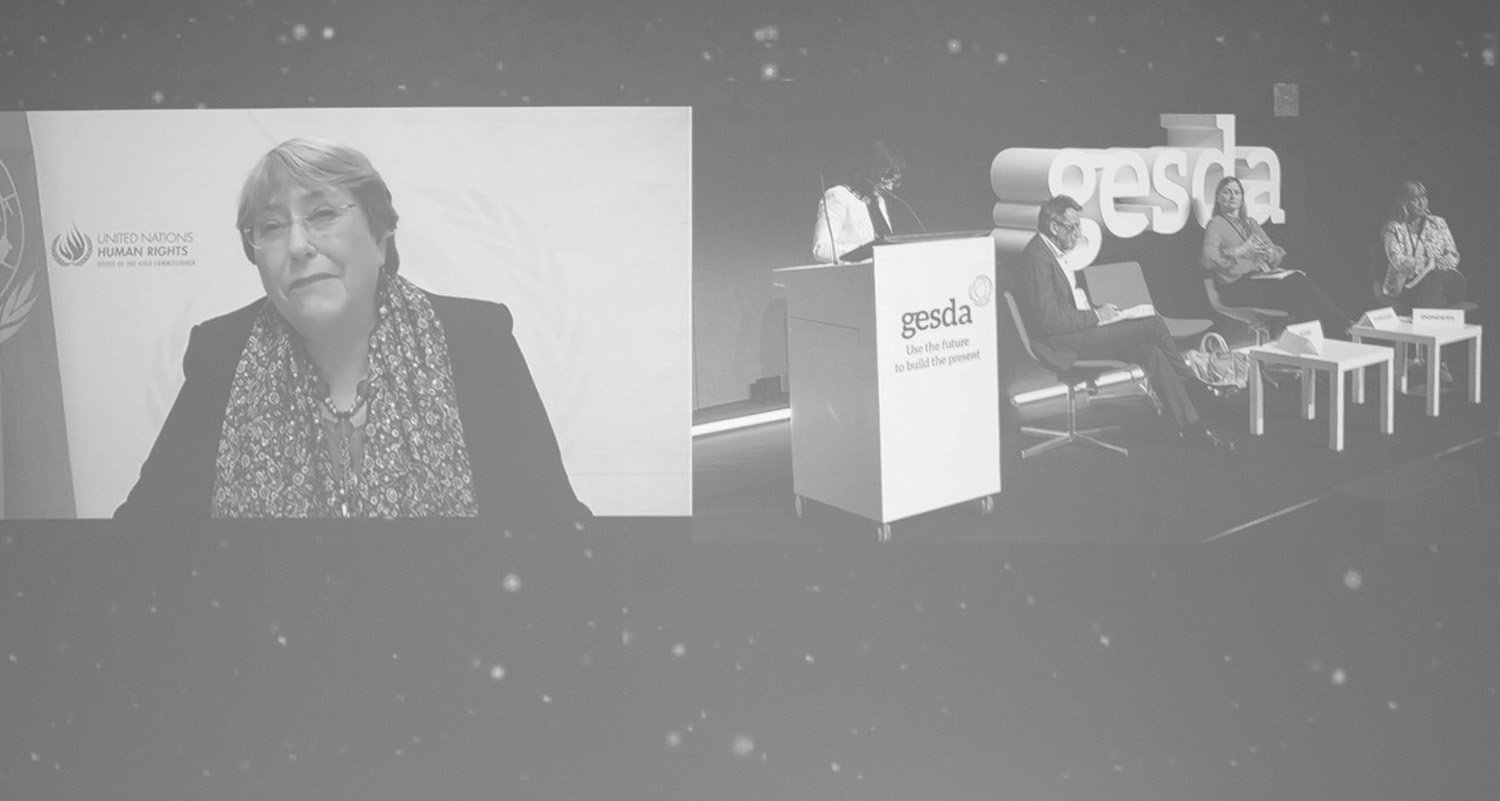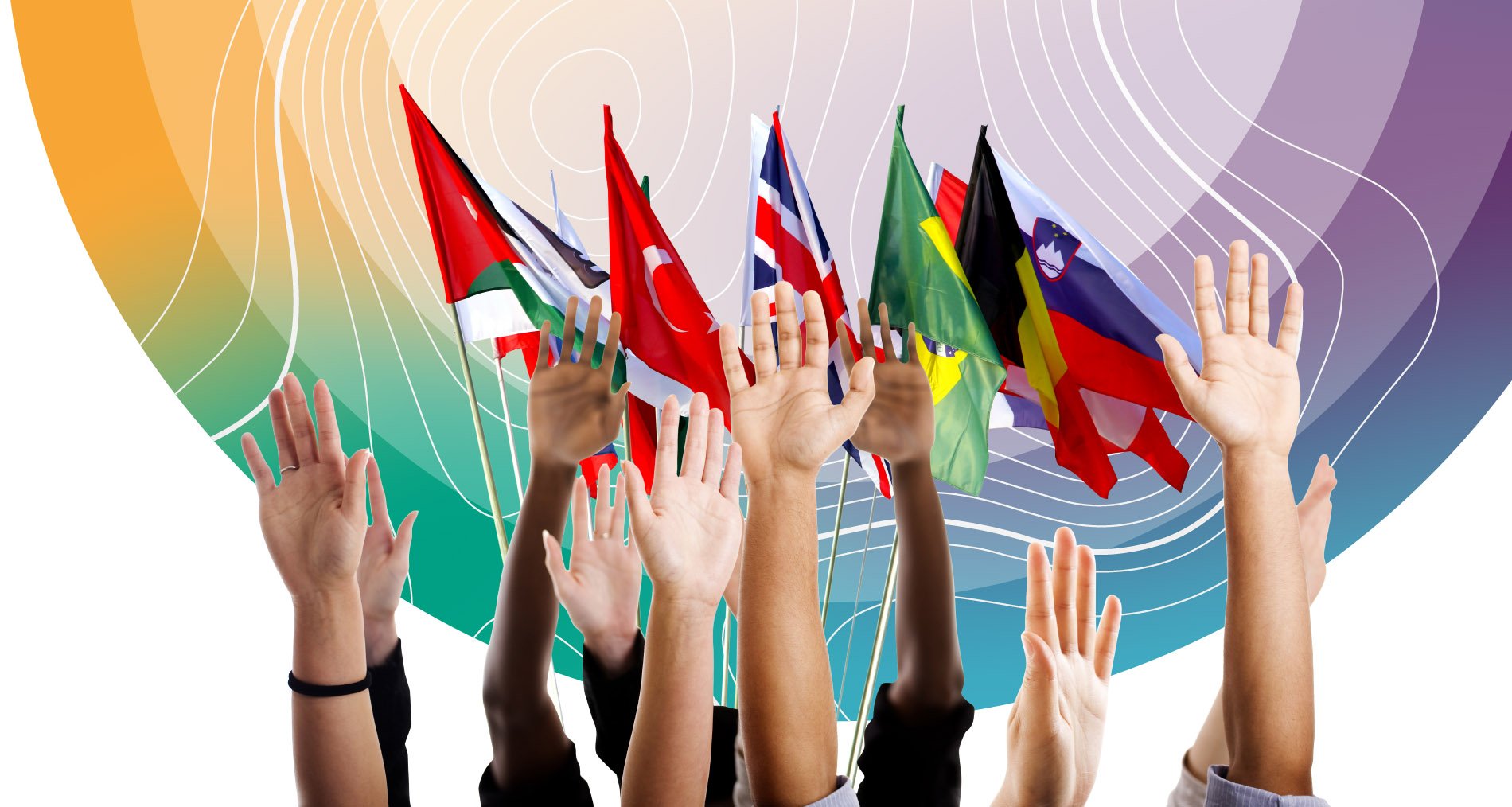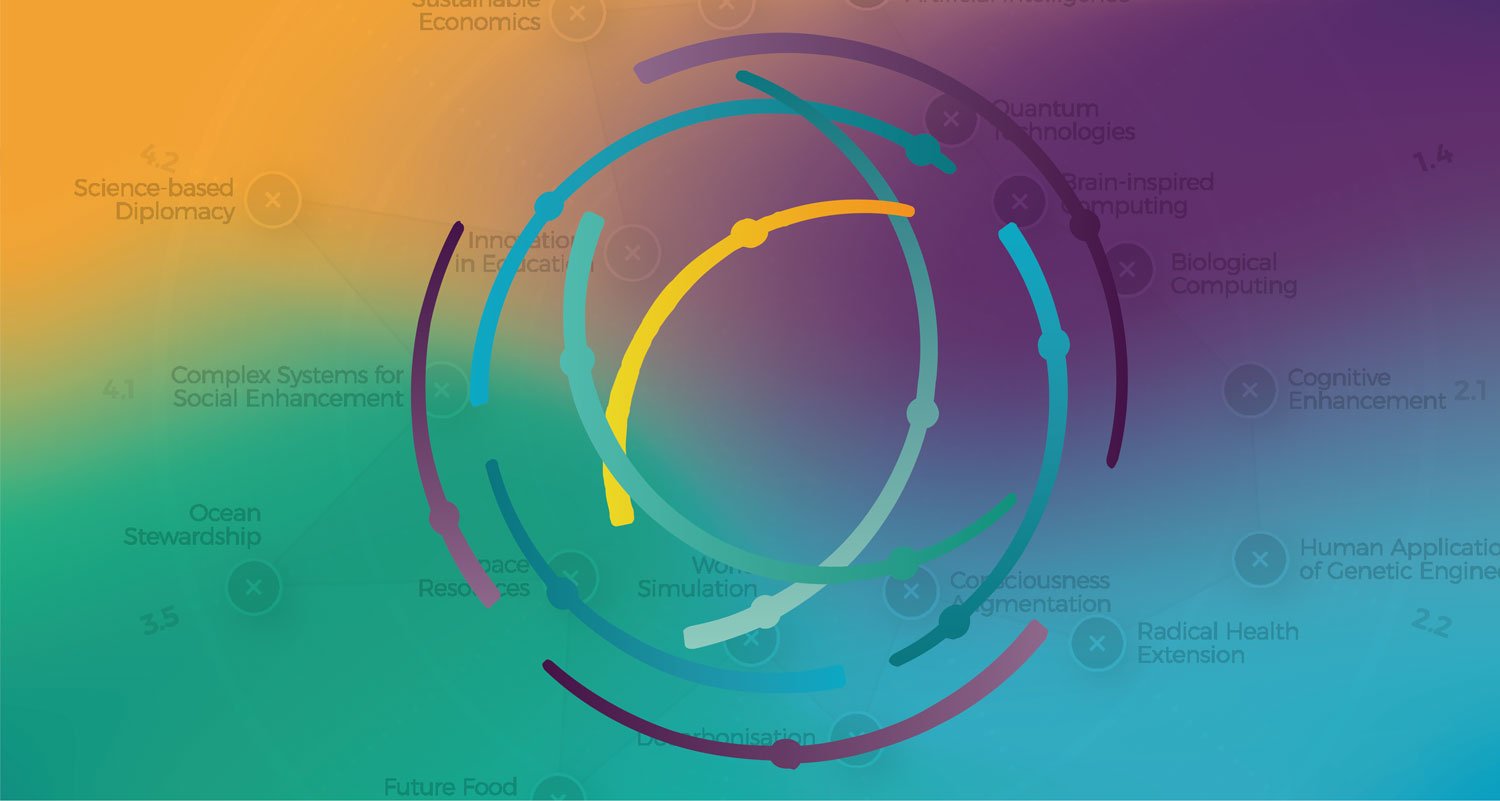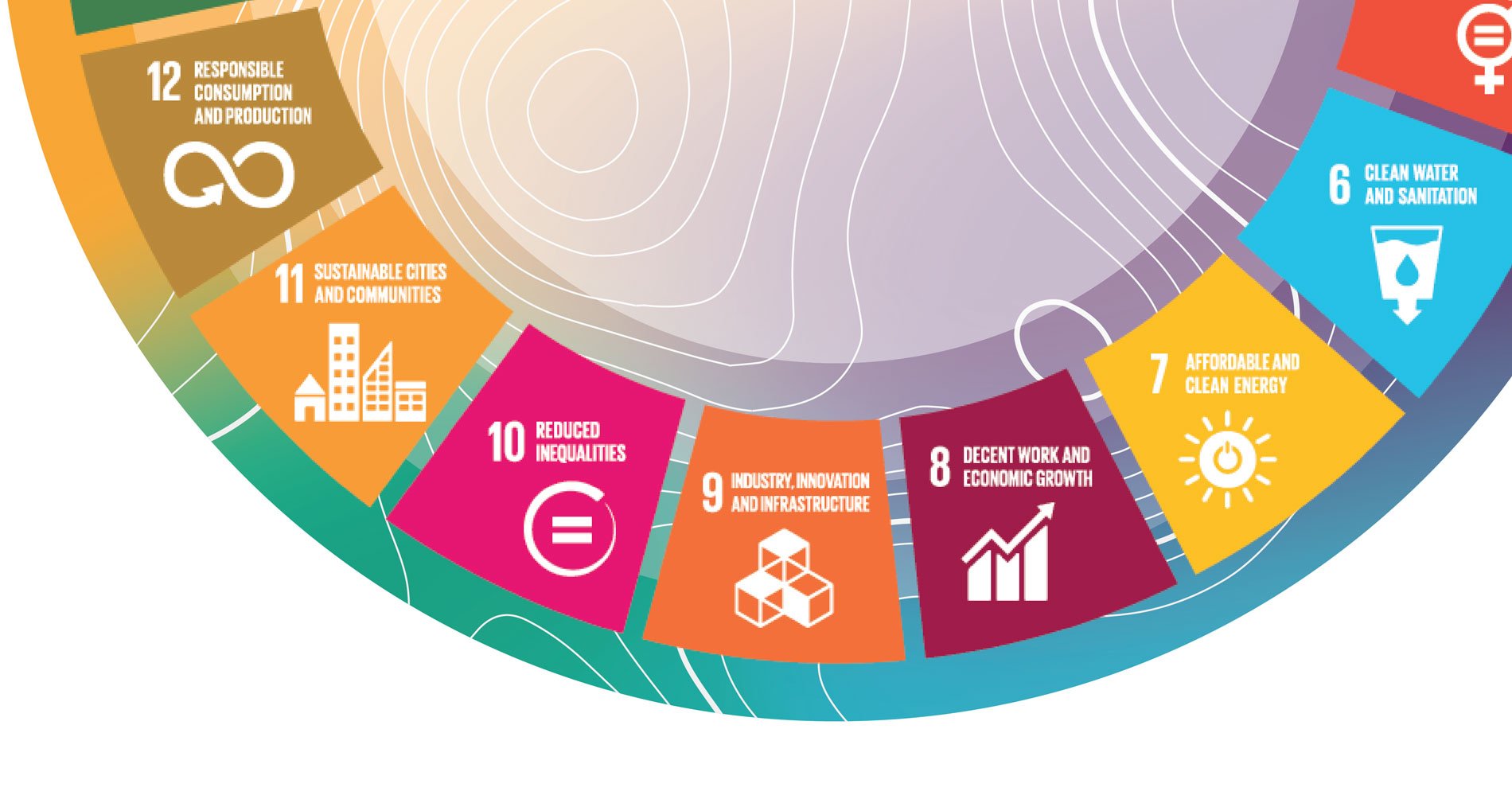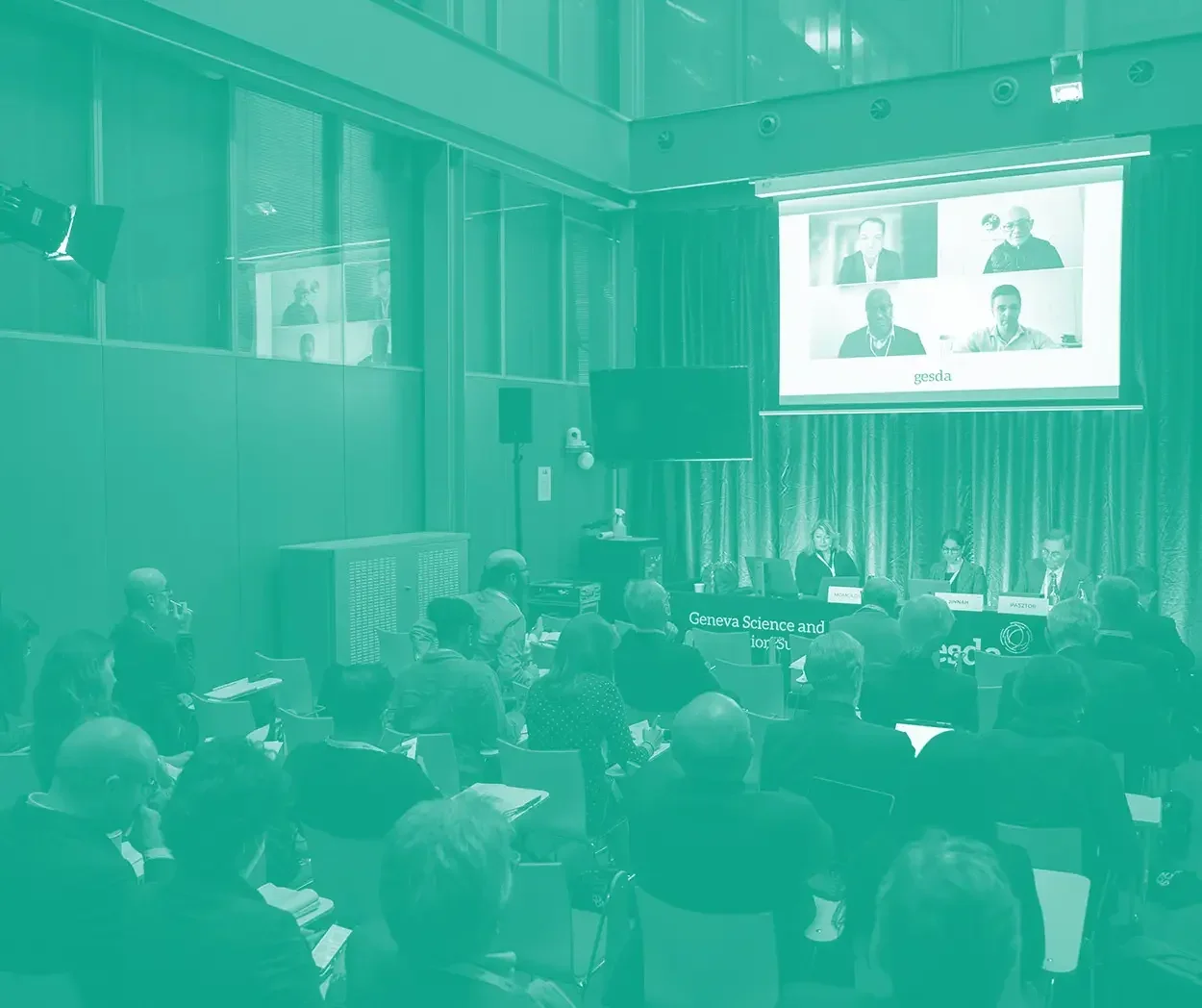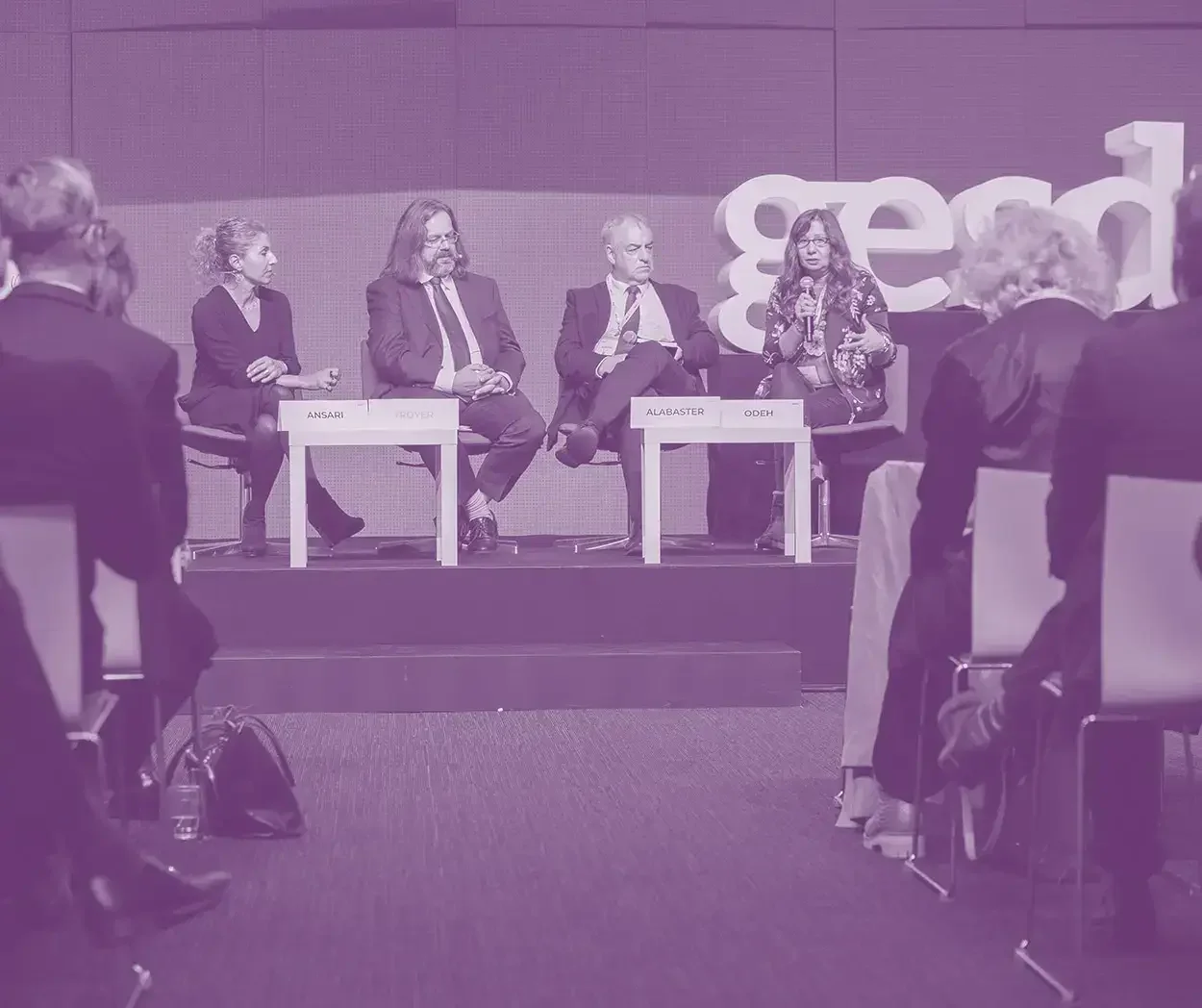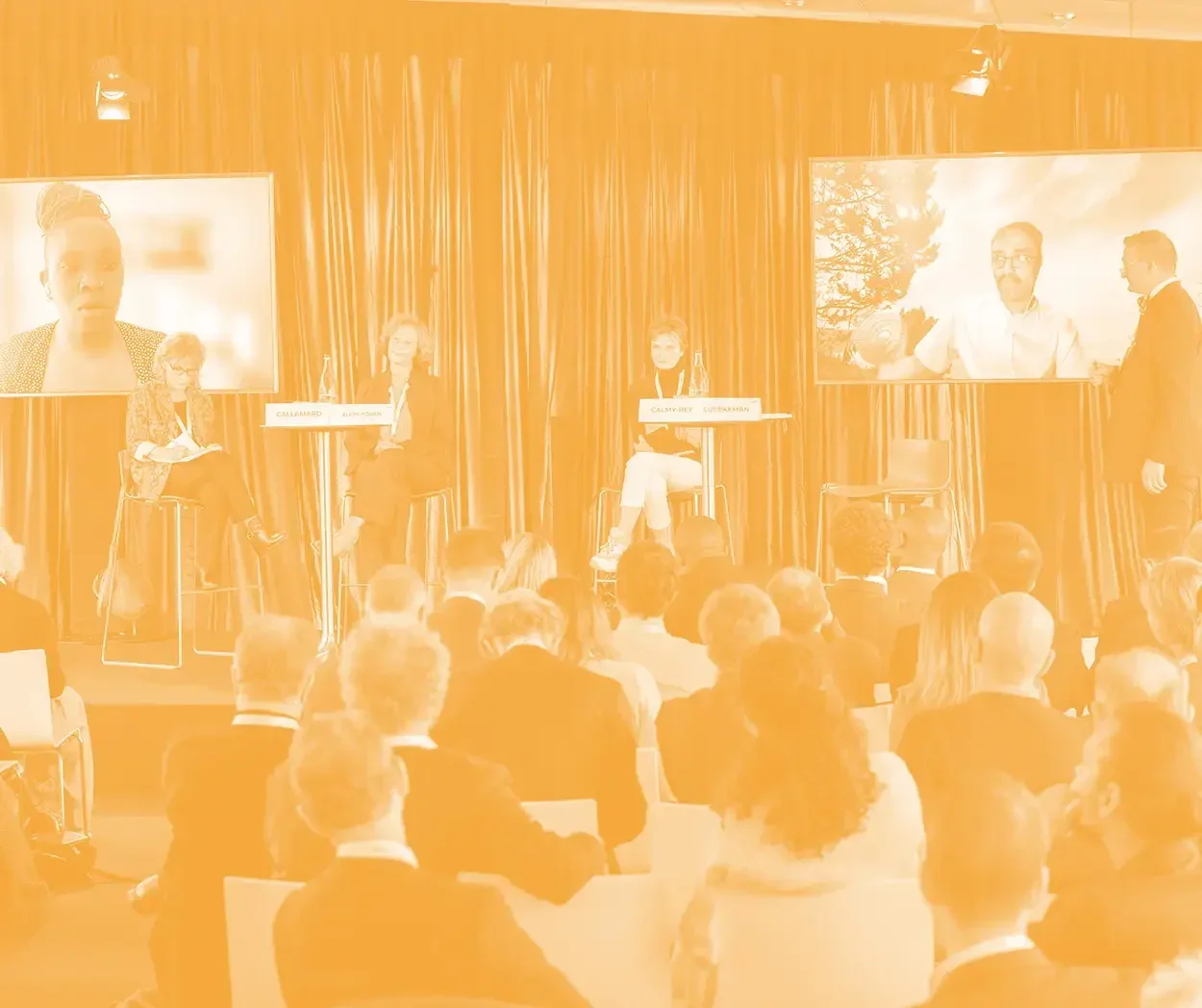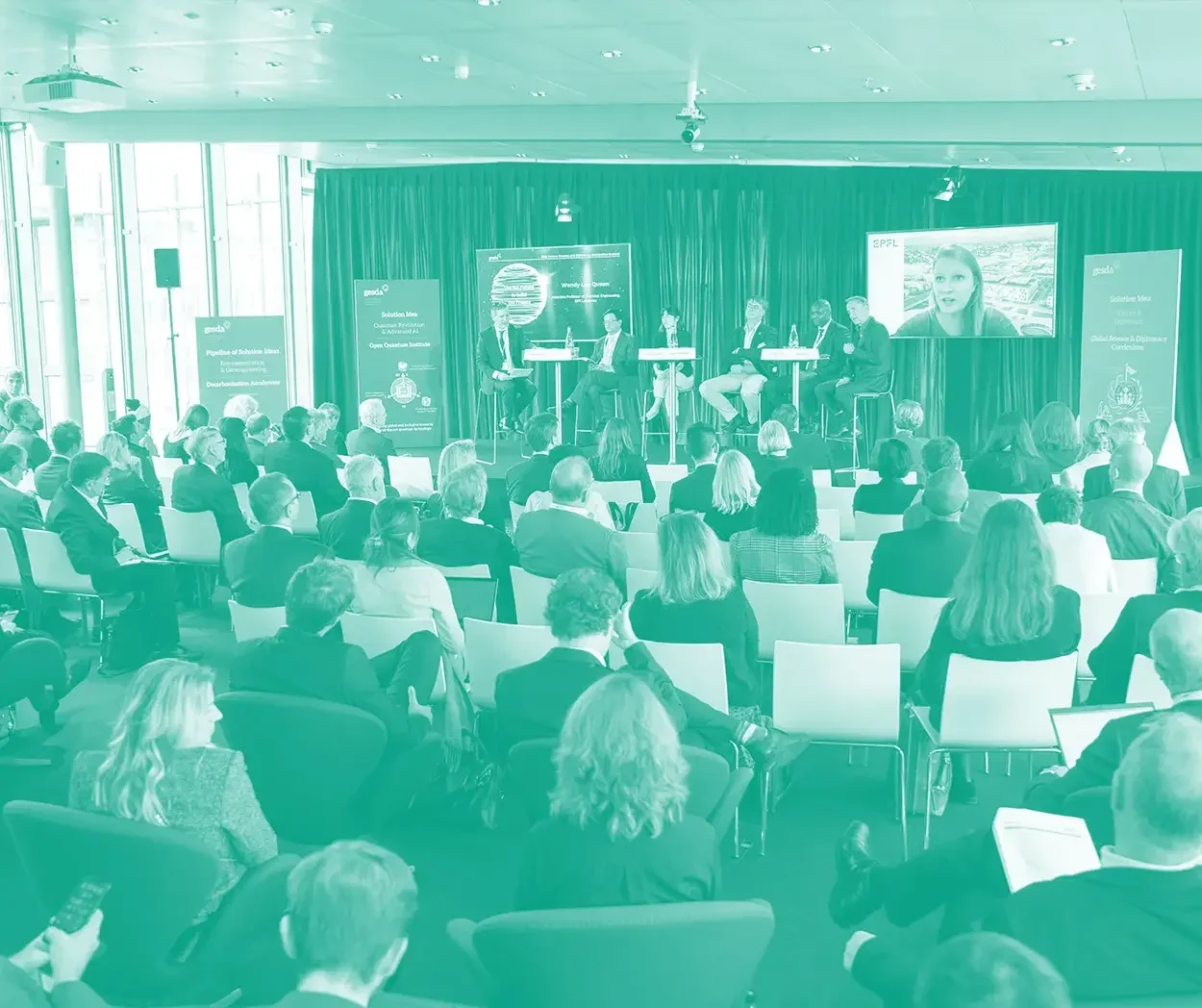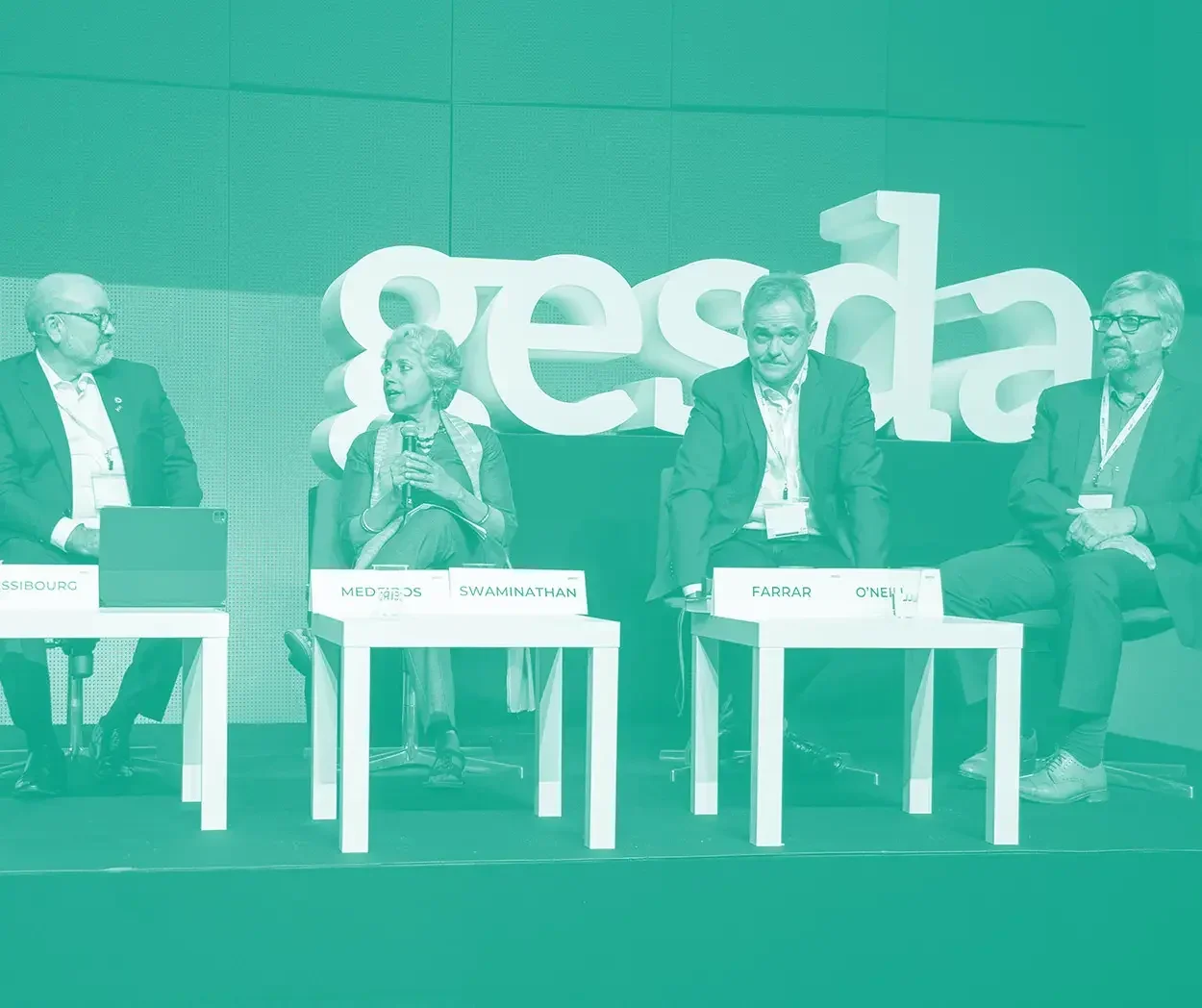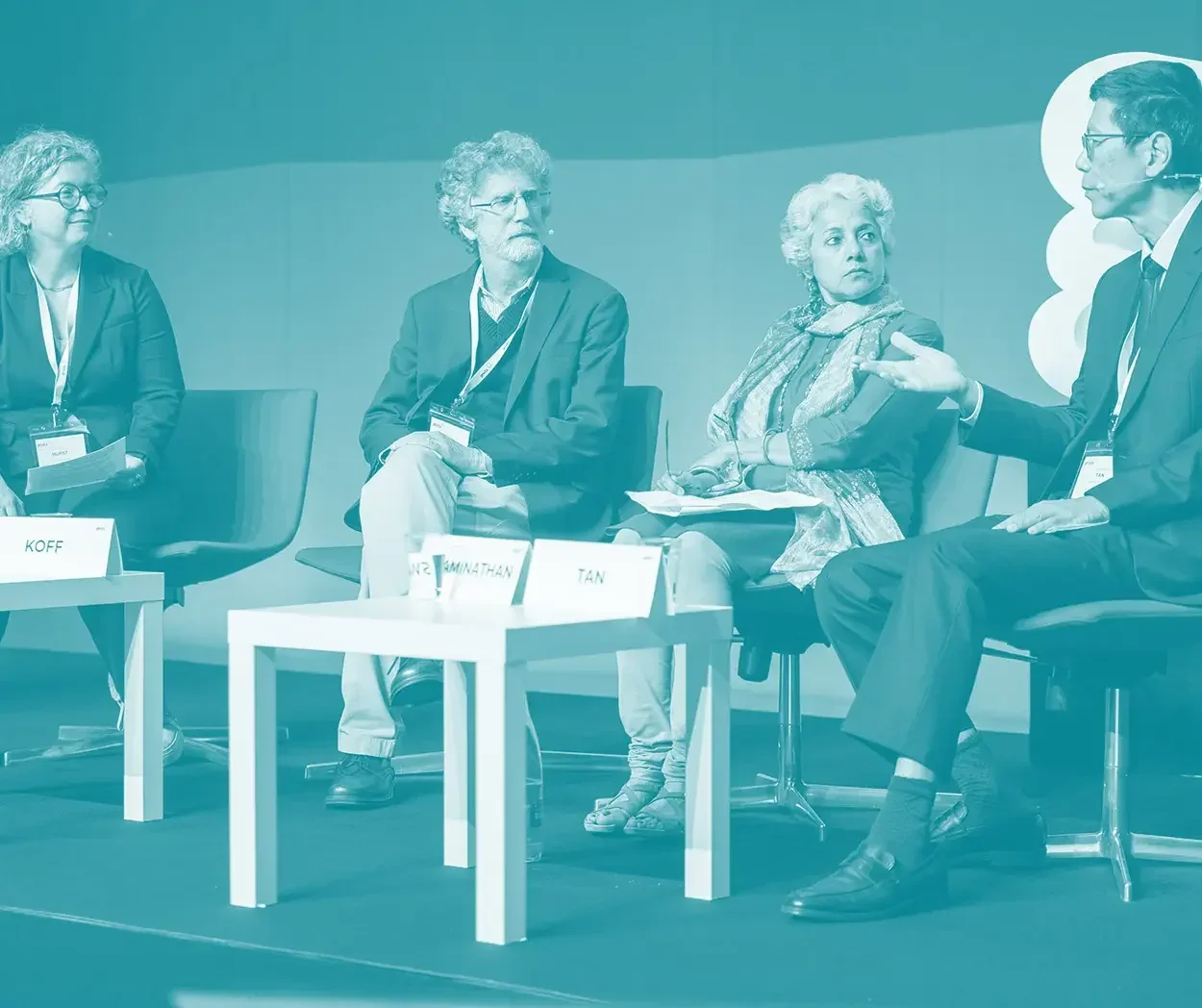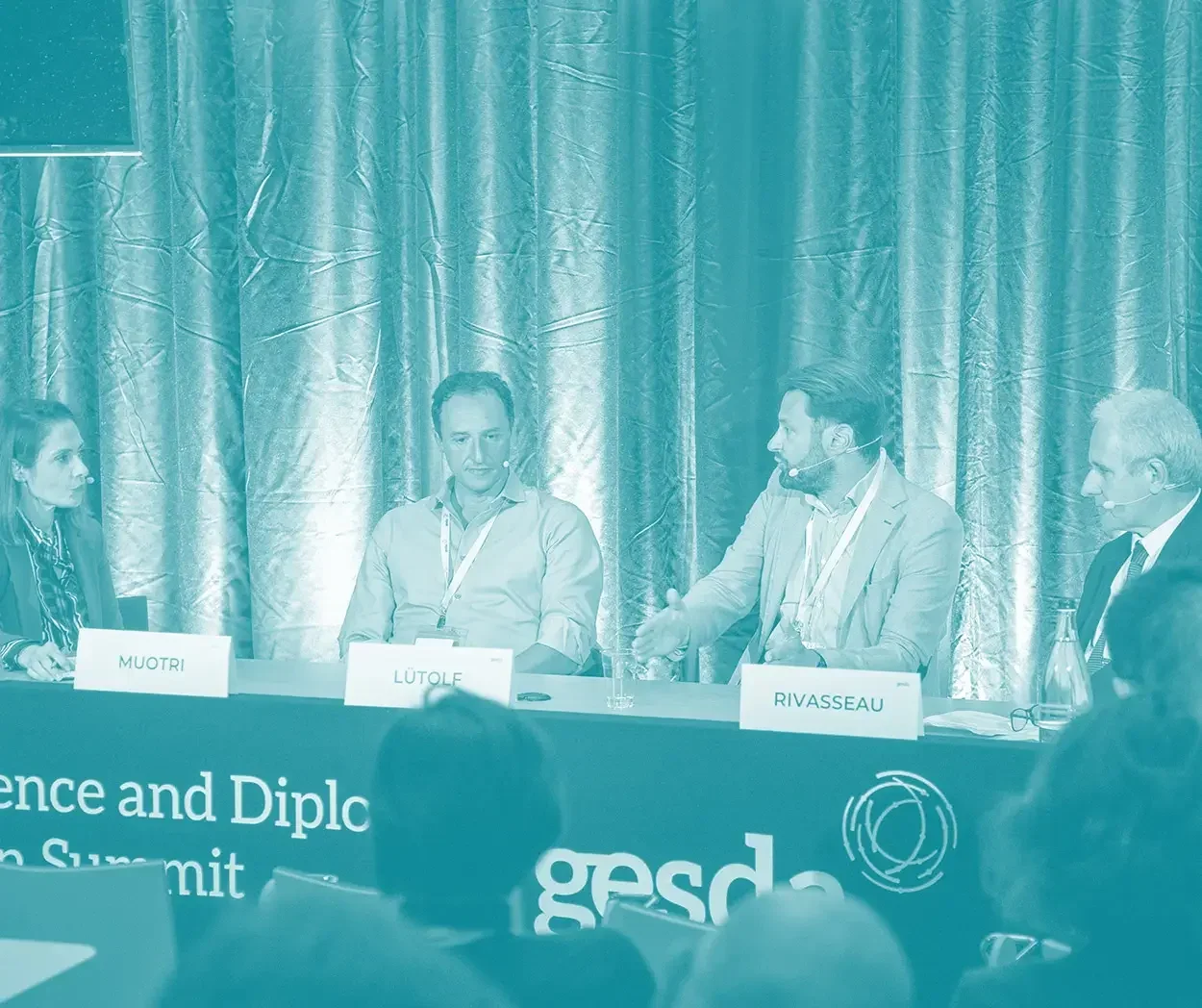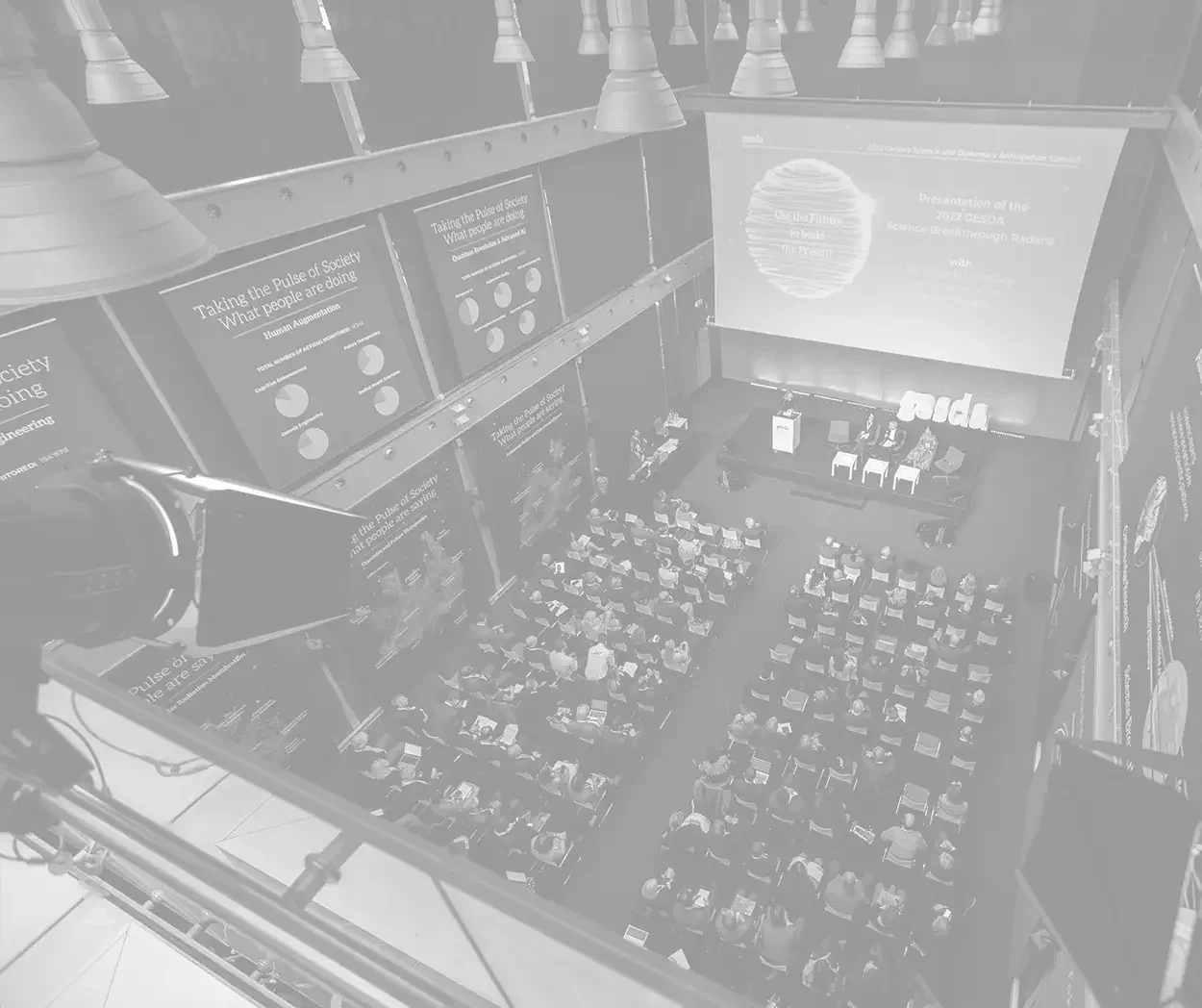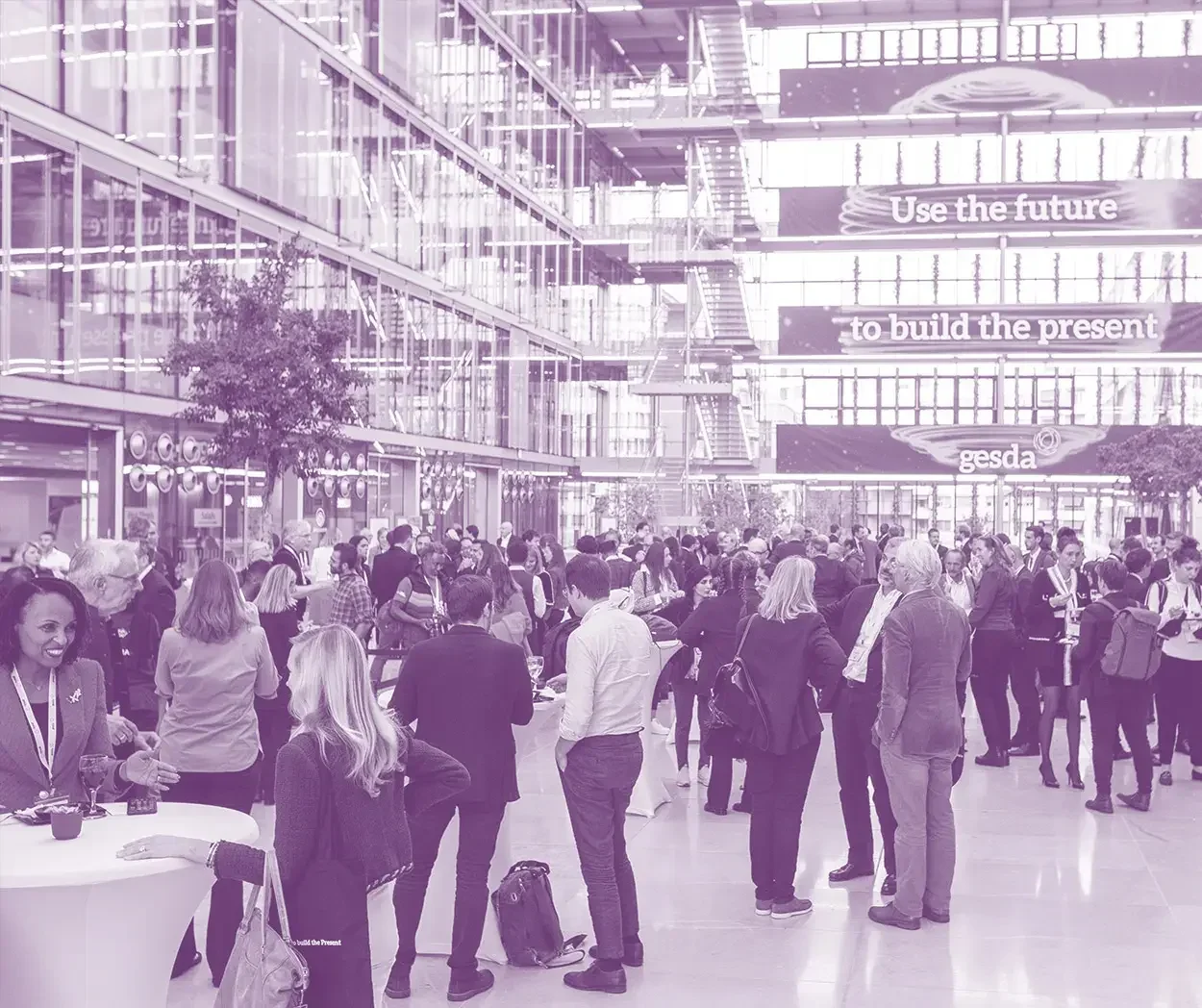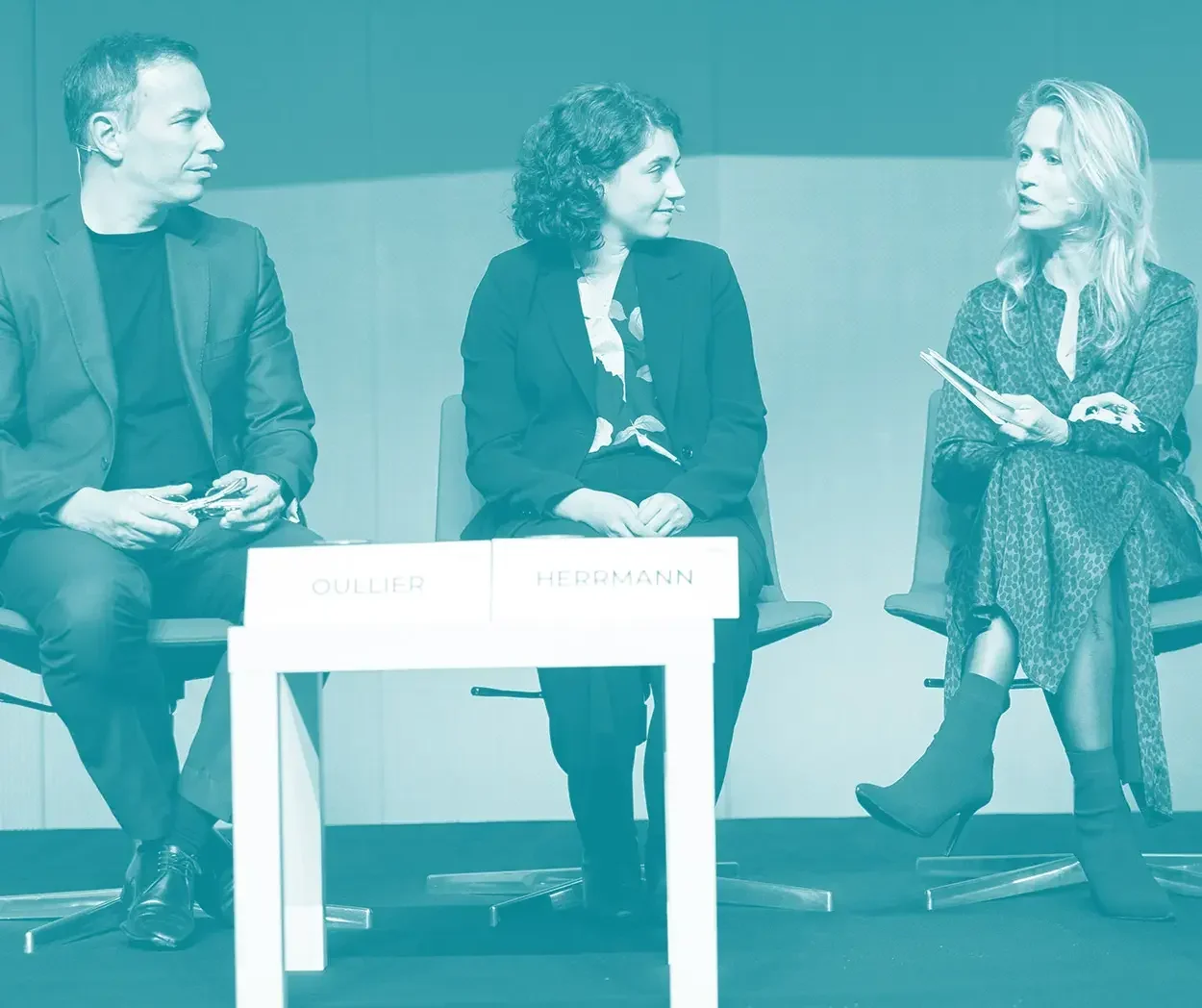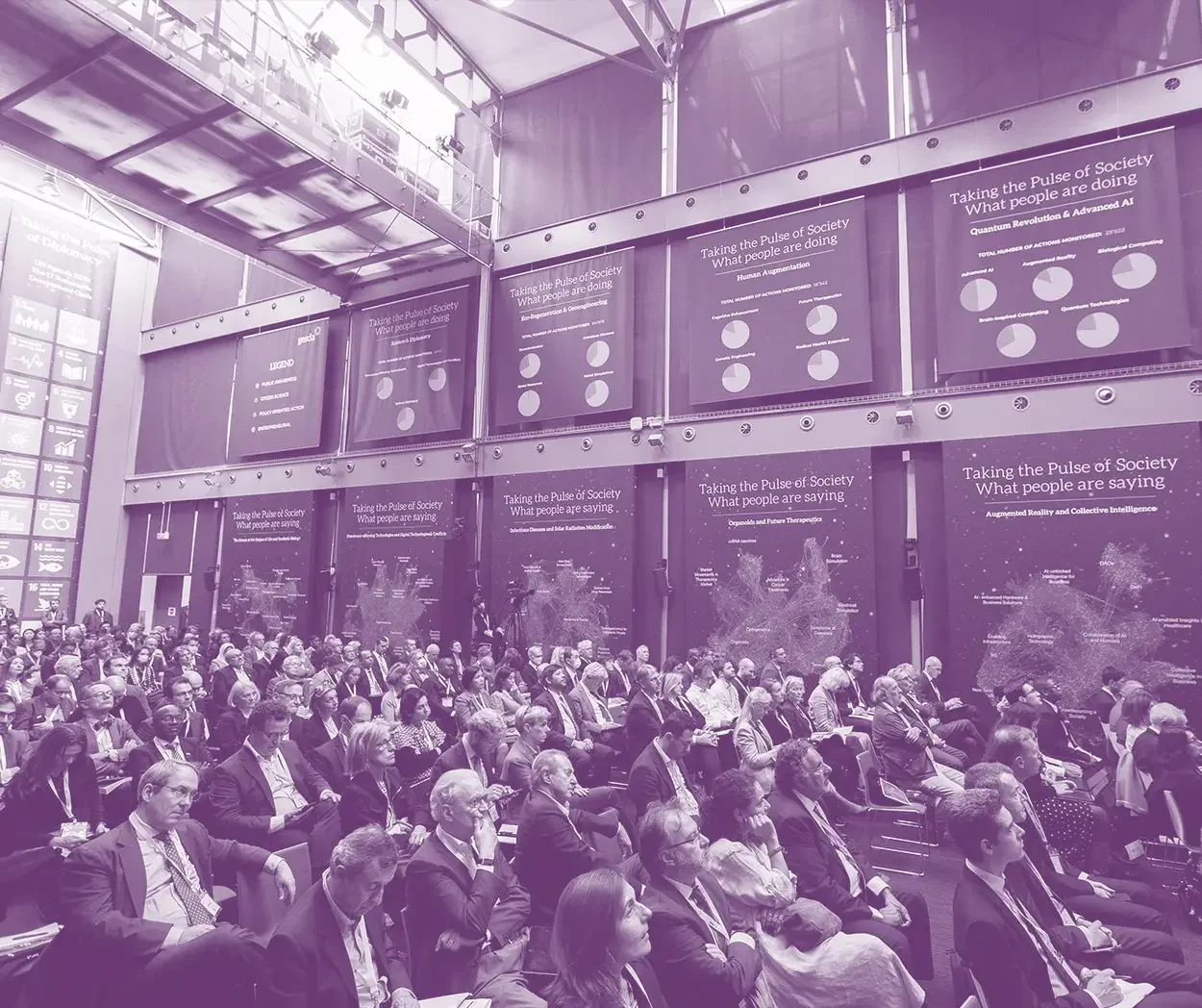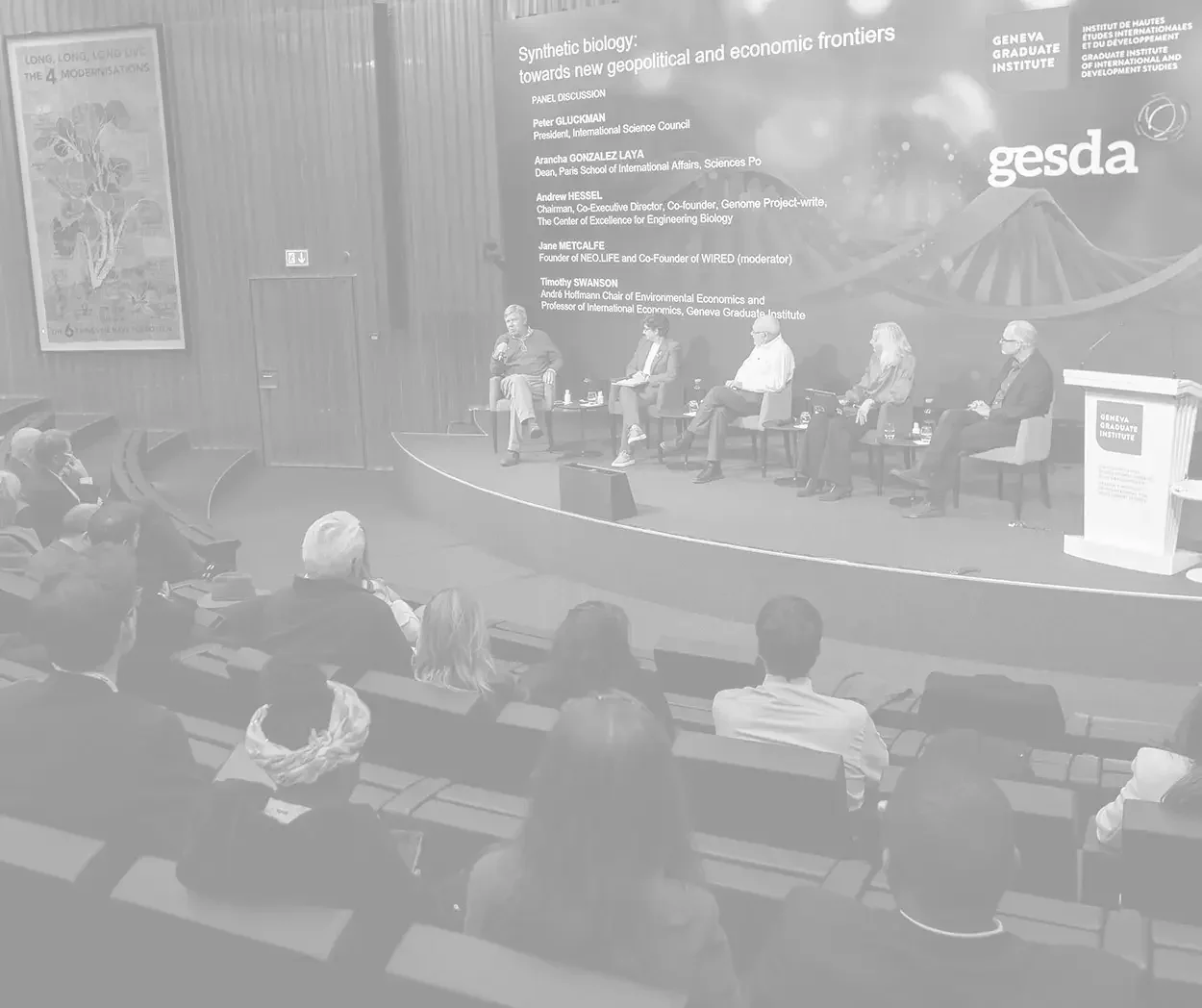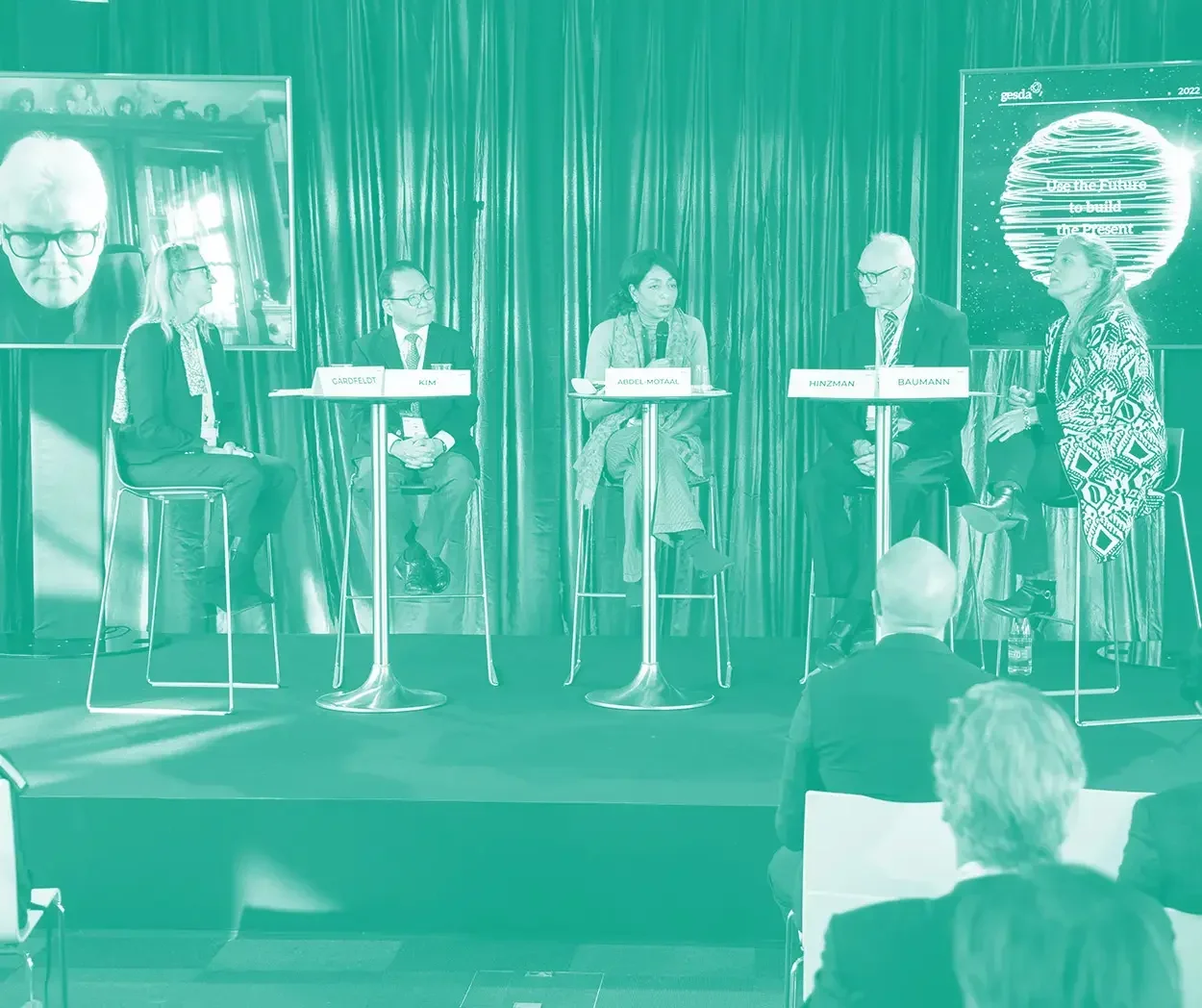By leveraging the Geneva International ecosystem and the diplomacy community at large, GESDA aims to accelerate the ways in which we can derive collective benefits, making the most of opportunities to translate proposals into concrete initiatives, and creating new ways for different stakeholders to contribute to a better future. In doing so, we can move from scientific anticipation to anticipatory science diplomacy in order to:
respond more effectively and more quickly to emerging and future challenges, always keeping the huge costs of non-anticipation and missed opportunities in mind.
help — as an honest broker — multilateralism adapt to the acceleration of science, ensuring that its benefits are co-developed and enjoyed by all of the world’s inhabitants equally.
offer a platform for joint deliberation across all communities on possible solutions to the emerging challenges. In this spirit, the annual Geneva Science and Diplomacy Anticipation Summit examines the most anticipated scientific disruptions in order to build consensus around potential initiatives for addressing practical problems.
This is why this last section of the Science Breakthrough Radar, in analogy to GESDA’s Anticipatory Situation Room Methodology, is reflecting on the necessary ingredients to move from the knowing to the acting, or in GESDA’s words, from Think Tank to Do Tank. The essays, Acting as a Honest Broker, The Cost of Non-Anticipation and The Ethics of Anticipation presented in the past edition and available on the digital edition of this report provide additional essential reflections about the required essential ingredients and how to understand the key summit takeaways presented in the following pages. It contains a report on the incubation phase of the Open Quantum Institute and a summary of the 2022 GESDA Summit, with an introduction to the event, and a selection of proceedings and takeaway messages serving as a basis for the collective solution development process.
